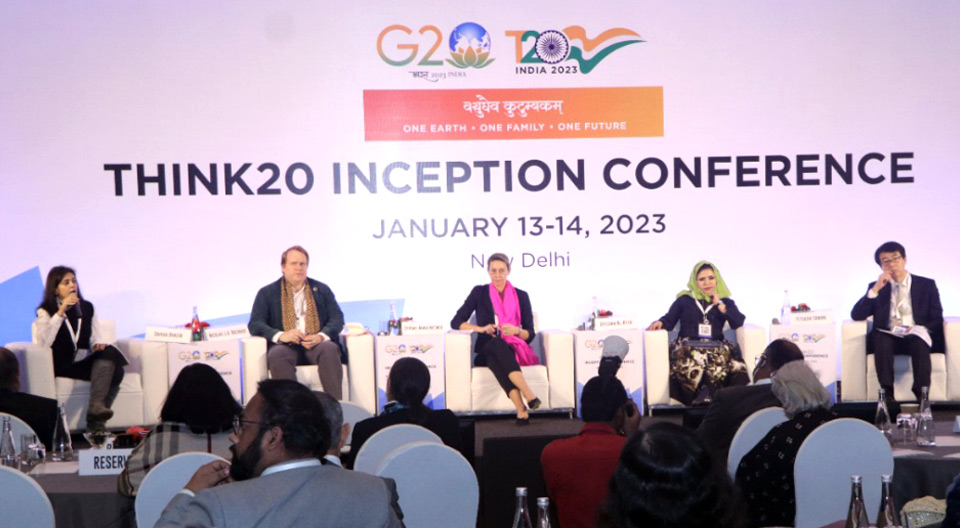India assumed its G20 Presidency in the midst of global flux. Post-pandemic recovery efforts were uncertain and uneven; the Ukraine crisis had resulted in supply-chain bottlenecks and consequent global stagflation; and the perennial onslaught of the “elephant in the room”— global warming and climate change—had only exacerbated the challenges.
While unveiling the logo and the theme, PM Modi posited the country as an architect for a forwardlooking and result-oriented agenda for the world and the G20 as an exemplar of change, a vision for sustainability and growth, and a platform engaging with all that matters to the global south. Prime Minister’s vision, of drawing on India’s age-old ethic of Vasudhaiva Kutumbakam, strongly reiterated that inclusiveness and global cooperation would undergird India’s G20 Presidency.
A framework of 4Ds delineates India’s identification of its priorities as President—the promotion of decarbonisation, digitalisation, equitable development, and the deescalation of conflict. This approach is reflected across the thematic areas of Think20 (T20) India—the G20’s official Engagement Group for think tanks—which is often referred to as the “ideas bank” of the G20. The exchange of perspectives among high-level experts, research institutions, and academics that the T20 facilitates lends analytical depth and rigor to the G20’s deliberations. The T20, thus, institutionalised what Thomas Homer-Dixon calls “ingenuity” or the “production of ideas”, and helps bridge “the ingenuity gap”, i.e. the critical gap between the demand for actionable, innovative ideas to solve complex challenges and the actual production of those ideas.
The 4Ds are closely oriented towards the achievement of the Sustainable Development Goals (SDGs). As such, these framing ideas or principles are reflected across the T20’s seven Task Forces, which deal with ‘Macroeconomics, Trade, and Livelihoods’; ‘Our Common Digital Future’; ‘LiFE, Resilience, and Values for Well-being’; ‘Clean Energy and Green Transitions’; ‘Reassessing the Global Financial Order’; ‘Accelerating SDGs’; and ‘Reformed Multilateralism’.
Constitution of Think20 Task Forces
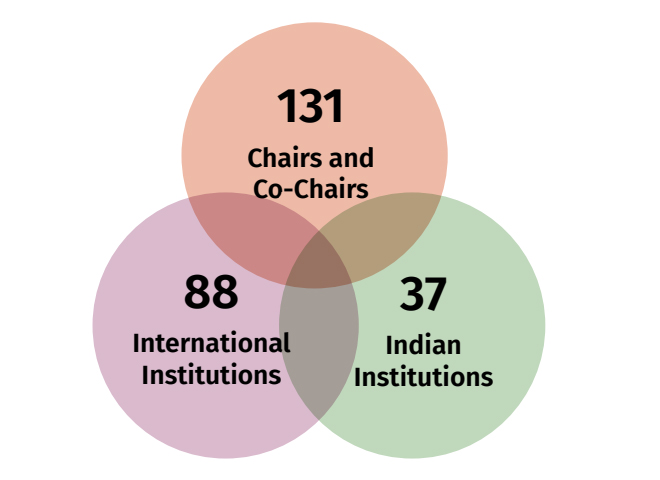
The T20 Mid-Year Conference took place in Mumbai on 10-12 May 2023. Three hundred attendees and Task Force members from across the G20 countries deliberated on the seven selected themes and took stock of the T20’s achievements thus far and the road ahead. Two particular elements of T20 India’s research and engagements stand out—its focus on mainstreaming gender and promoting gender equality, and its efforts to ensure that the African continent is an integral part of all conversations. India, being the second of four successive emerging economies to lead the G20 (Indonesia, India, Brazil, and South Africa will have been G20 Presidents between 2022 and 2025), has not only been a prominent voice of the Global South but has specifically put forth the unique developmental imperatives of the African landmass.
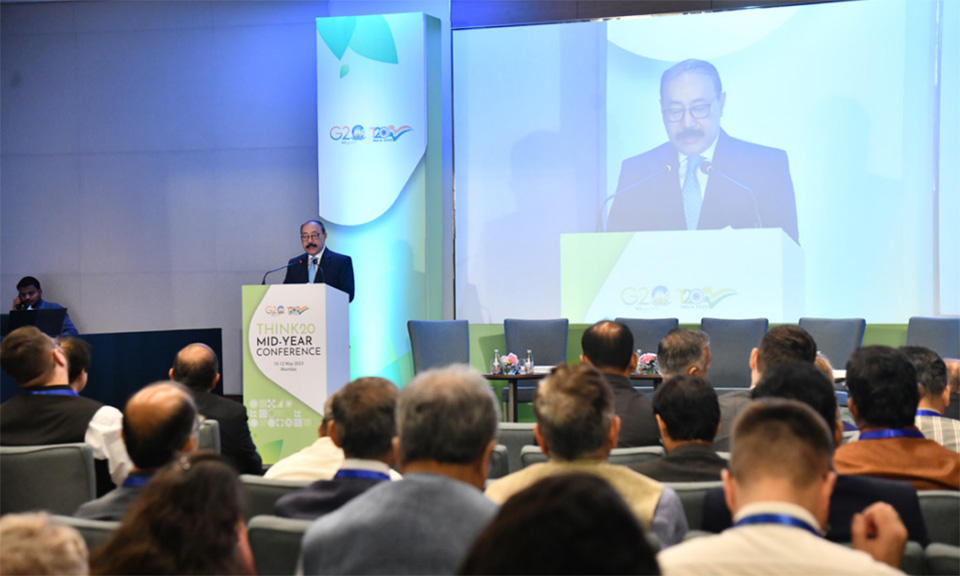
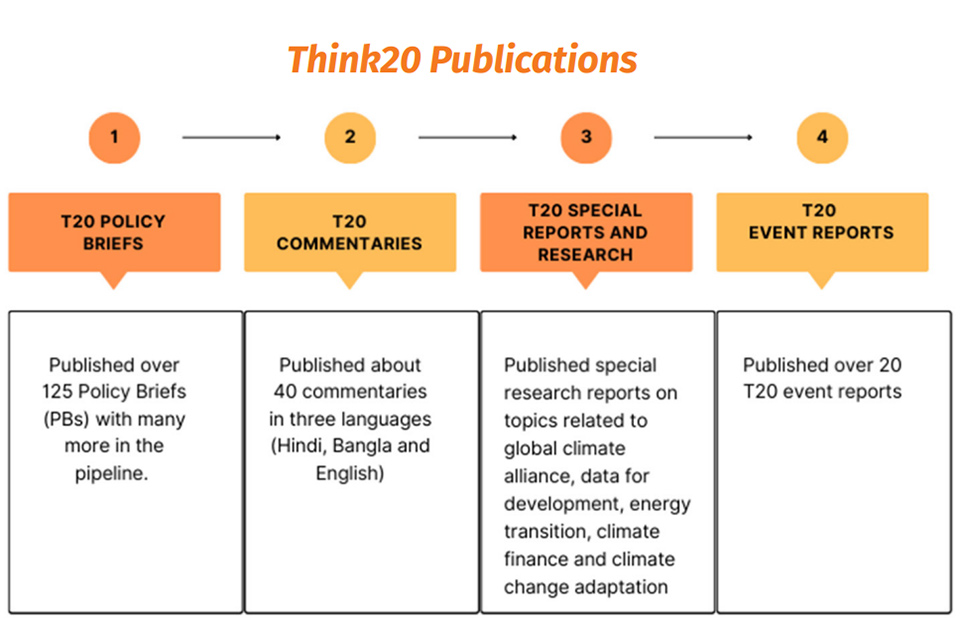
A key activity at the Mid-Year Conference was to finalise the Task Force Statements, which are vision documents about the Task Forces’ areas of engagement. The T20 Communiqué, a summary of recommendations to feed into the G20 process, is being drafted based on these statements and will be launched at the Think20 India Summit in Mysuru in August 2023. Moreover, as the term of the Indian T20 crosses its mid-point, it has already hosted over 50 events across the country and beyond and published over 125 Policy Briefs (PBs) with many more in the pipeline. These briefs are the outcome of processing raw ideas and producing them as actionable inputs.
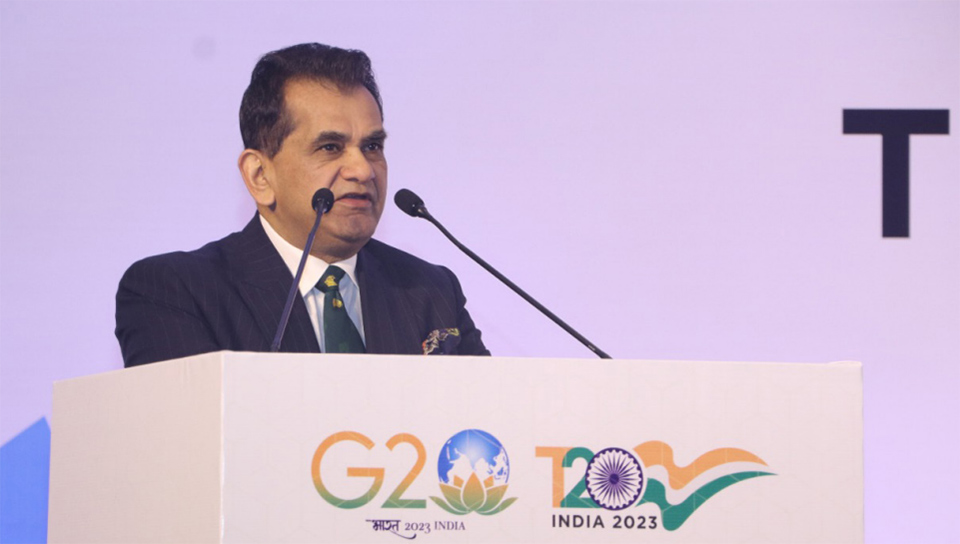
The ethos of ‘Jan Bhagidari’ (or broad-based civic participation in governance) has underpinned the Indian Presidency’s efforts to take the G20 and its ideas to constituencies such as the youth, women, businesses, and civil society. Recognising the youth and women as essential partners in development and growth, the Mumbai Conference engaged actively with these target groups, and over 100 students from schools, colleges, and universities across Mumbai and Pune took part in the event.
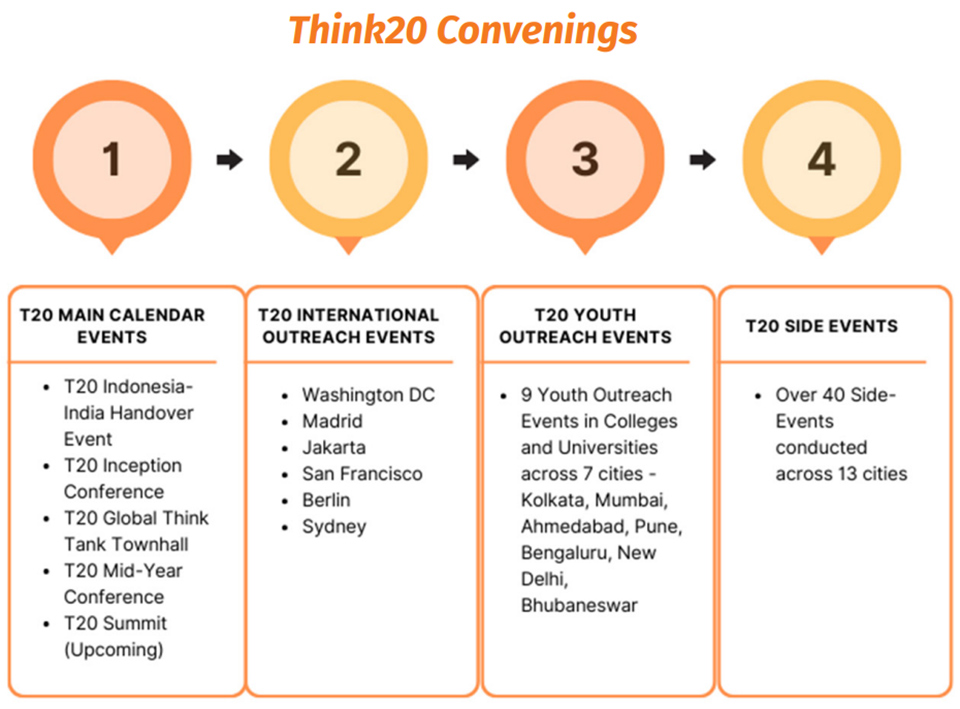
The ethos of ‘Jan Bhagidari’ (or broad-based civic participation in governance) has underpinned the Indian Presidency’s efforts to take the G20 and its ideas to constituencies such as the youth, women, businesses, and civil society. Recognising the youth and women as essential partners in development and growth, the Mumbai Conference engaged actively with these target groups, and over 100 students from schools, colleges, and universities across Mumbai and Pune took part in the event.
This commentary originally appeared in G20 India Newsletter.


